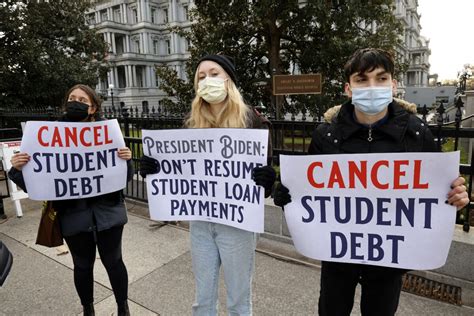Story by asheffey@businessinsider.com
The 2024 presidential election is quickly approaching — and there’s a lot on the line for student-loan borrowers.
While most federal borrowers were not required to make any payments for nearly three years of President Joe Biden’s first term, they were also hopeful for broad debt relief. In August 2022, Biden announced up to $20,000 in debt cancellation for borrowers making under $125,000 a year.
Shortly after the relief was announced, millions applied — but their hopes were quickly dashed when conservative groups filed lawsuits to block the relief. The Supreme Court ultimately ruled in June that the law Biden used to cancel student debt did not actually give him that authority. Now the Education Department is in the process of crafting a new plan under a different law.
But, as Insider previously reported, it’s possible the new relief would not be implemented until 2025, and a Republican presidential winner in 2024 would likely cast Biden’s efforts aside given the GOP’s opposition to broad student-debt forgiveness.
On top of that, many of the GOP candidates have vowed to get rid of the Education Department altogether — throwing into question the future of student-loan management, financial aid, and more.
It’s something even former President Donald Trump’s Education Secretary Betsy DeVos has pushed for, saying in July that “I don’t think the Federal Department of Education should exist.”
“I’m hopeful that we elect a president who is also committed to either scaling back dramatically or ultimately shutting down the Department of Education,” she said.
Here’s what Republican presidential candidates are saying about the Education Department — and how it could impact millions of student-loan borrowers.
The GOP’s future for the Education Department
Getting rid of the Education Department is a uniting point among GOP presidential candidates, along with some lawmakers. For example, Trump’s agenda should he win a second term includes shutting down the Education Department and sending “all education work and needs back to the States.”
Florida Gov. Ron DeSantis has pledged to do the same should he win the election, and he’s not stopping at the Education Department — he also said he wants to shut down the Internal Revenue Service, the Department of Commerce, and the Energy Department.
The same can be said for other GOP candidates Nikki Haley, Tim Scott, Chris Christie, and Vivek Ramaswamy. Ramaswamy claimed shutting down the Education Department would “shut down the head of the snake.”
Some lawmakers have introduced bills to do away with the Education Department, as well. GOP Rep. Thomas Massie in February introduced legislation consisting of one sentence: “The Department of Education shall terminate on December 31, 2023.”
What abolishing ED would actually mean
Massie told Insider in February that “unelected bureaucrats in Washington, D.C. should not be in charge of our children’s intellectual and moral development.”
“States and local communities are best positioned to shape curricula that meet the needs of their students. Schools should be accountable,” he said. “Parents have the right to choose the most appropriate educational opportunity for their children, including home school, public school, or private school.”
The belief that states should be able to control education — not the federal government — is a common one among GOP politicians. Currently, the Education Department can give guidance on what schools should teach and how to teach it, while states can shape what that looks like in classrooms.
However, the department oversees many other programs beyond school curriculum, like federal student loans, Pell Grants, and other financial aid operations.
For example, millions of student-loan borrowers are now reentering repayment after an over three-year pause. The Education Department was tasked with facilitating that return to repayment, coordinating with federal loan servicers, and implementing new repayment programs. Without an Education Department, it’s unclear how states would manage programs millions of Americans rely on.
And while private banks administer non-federal loans, borrowers with private debt often face higher interest rates without the option for federal relief.
Republican candidates and lawmakers have not commented on what the future of financial aid would be if the Education Department did not exist. But it’s something former President Ronald Reagan pushed for just a year after the department was created in 1980, saying at the time that doing so would not “only reduce the budget but ensure that local needs and preferences, rather than the wishes of Washington, determine the education of our children.”
While there has been talk among Republicans for years about getting rid of the Education Department, it hasn’t happened yet — likely because it would require a major campaign to pass such legislation through Congress, and since the logistics would be very complicated.
Read More From PatriotAmerican
But either way, reducing the capacity of the Education Department would mean the already minimal resources Federal Student Aid has for helping borrowers would be further strained, throwing into question what repayment — and possible debt relief — would look like down the road.


Luckily there are a lot of young people that would rather pay back their loans than pay back the Trillions in taxes the rest of their lives. Oh, and their kid’s lives maybe their grandkids and great grandkids lives. We are already 1.7 trillion OVER the budget this year. Economist are saying that by 2030 the interest on the national debt will be as much as the defense spending!